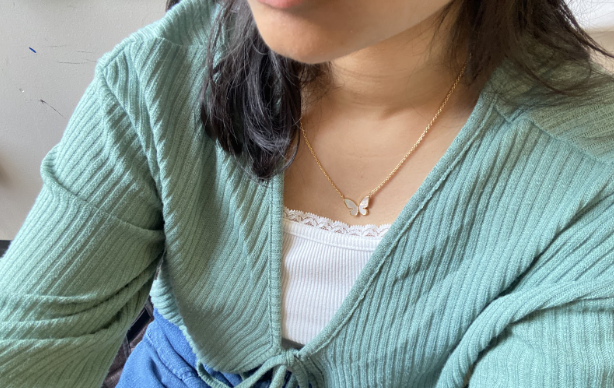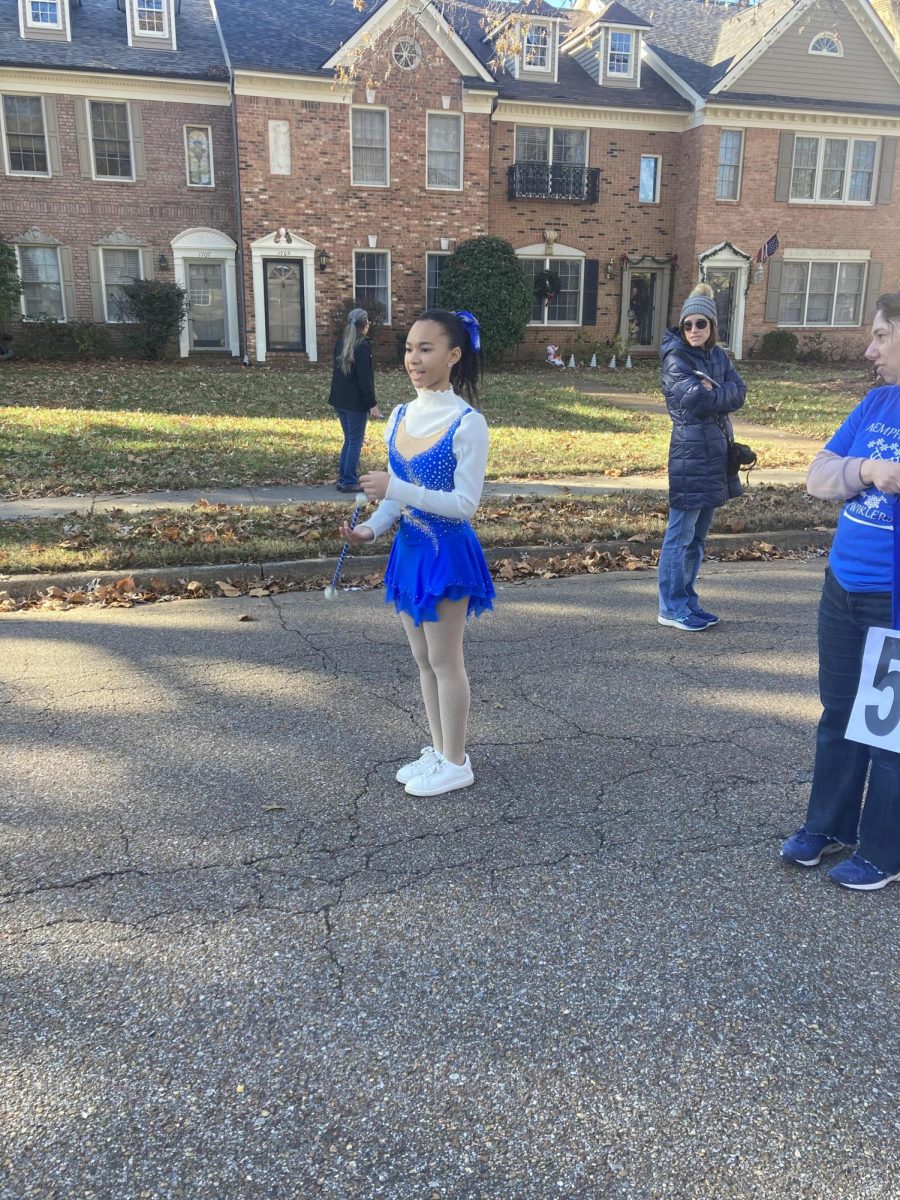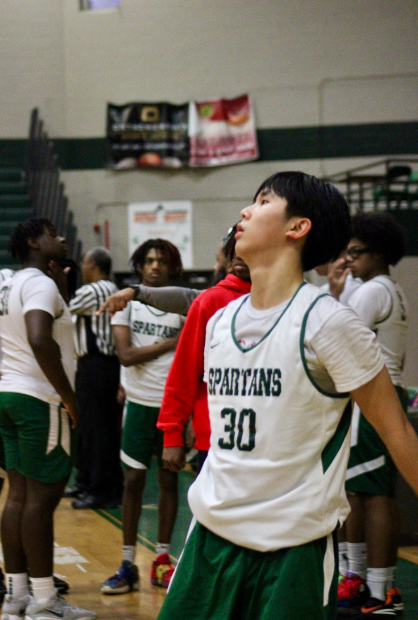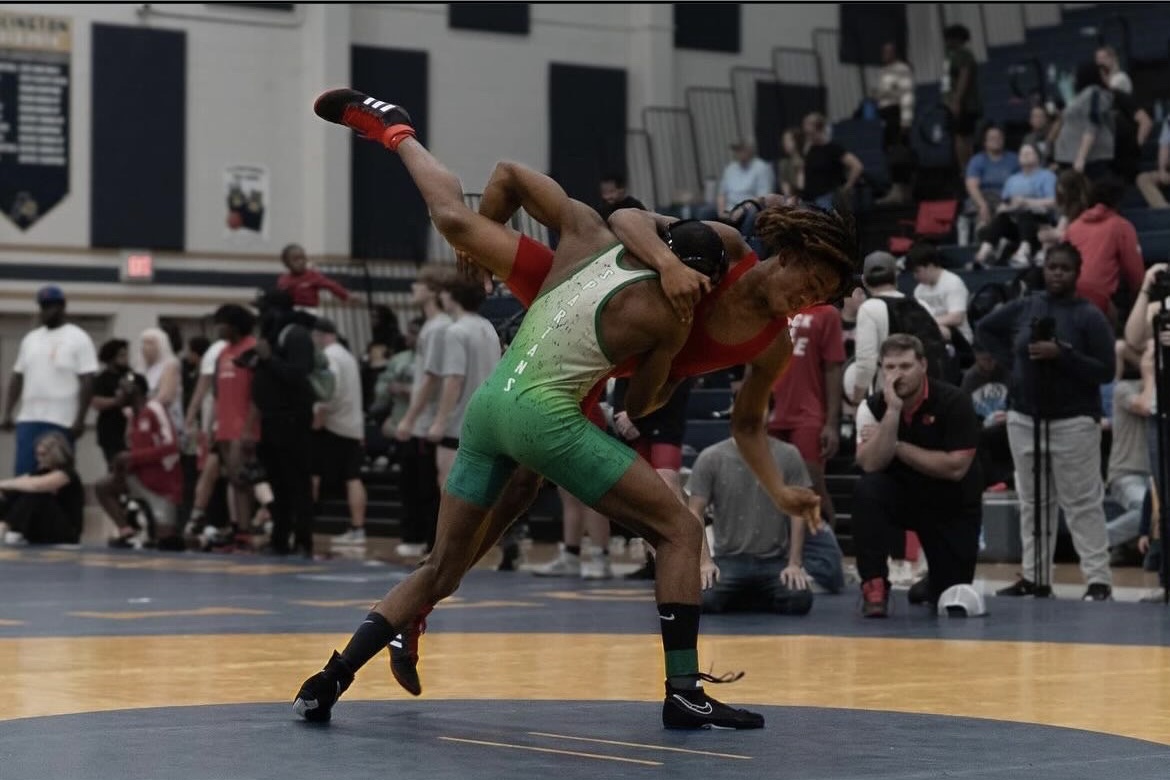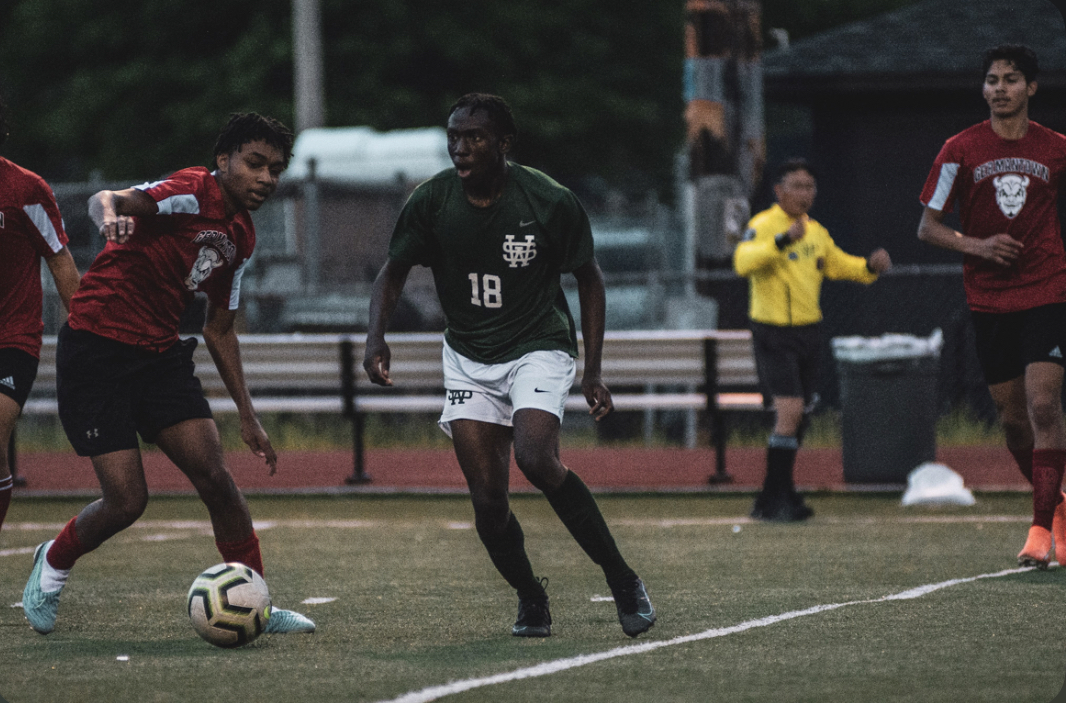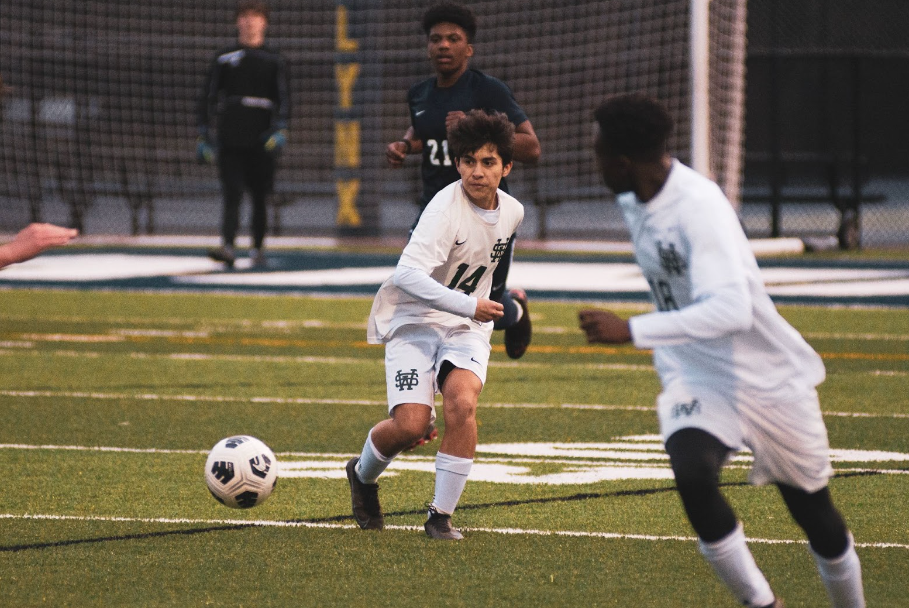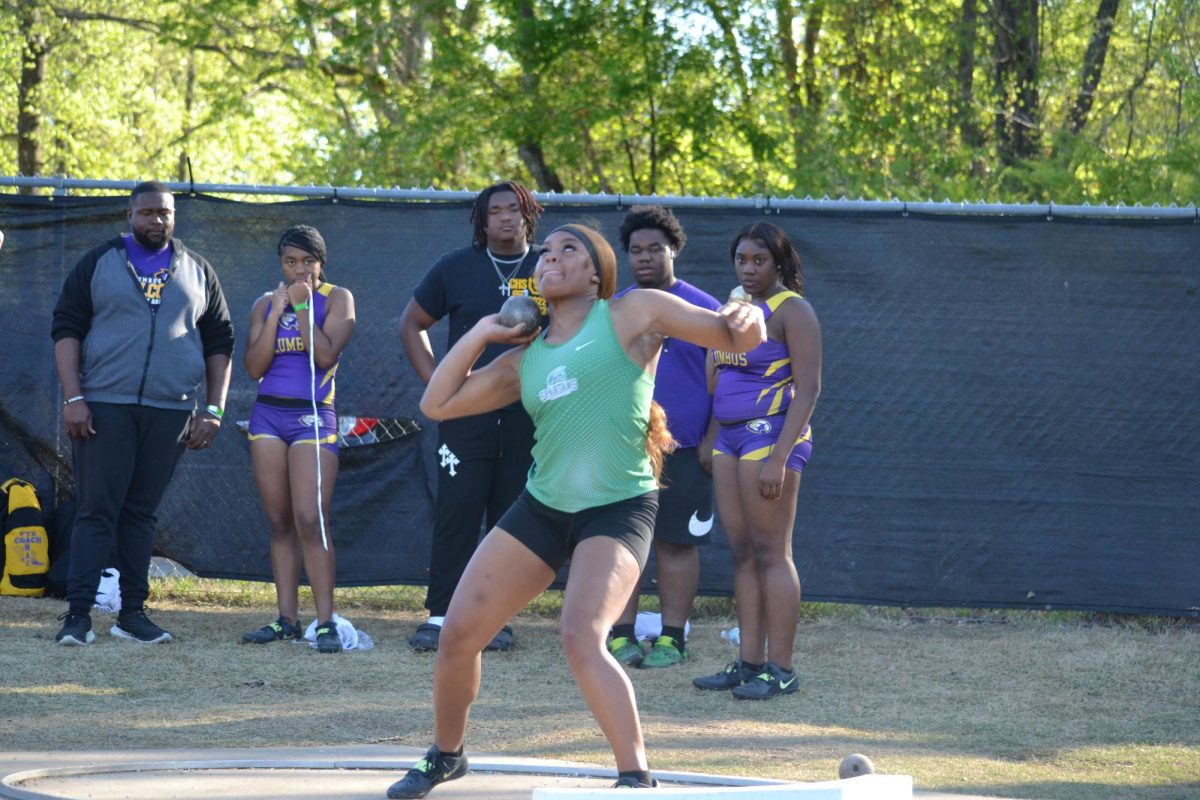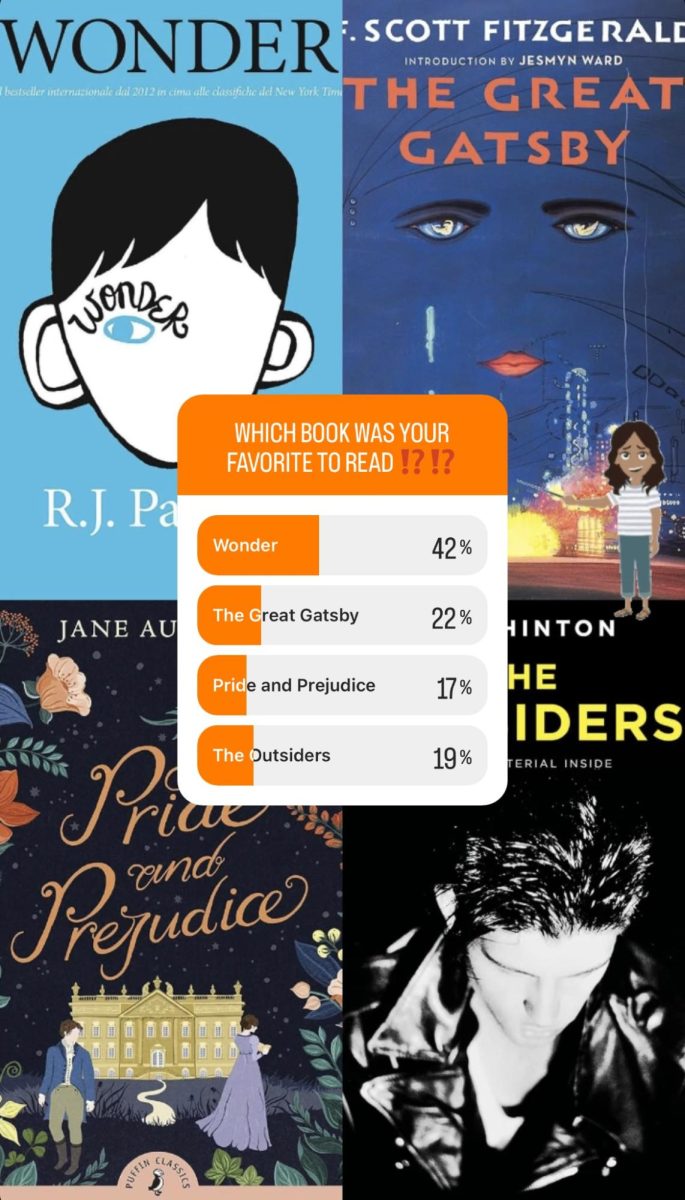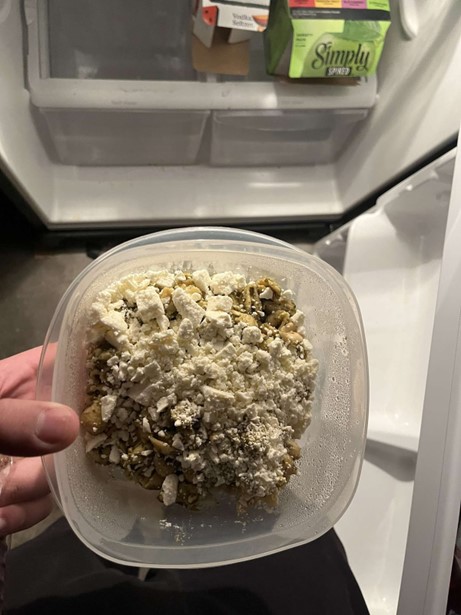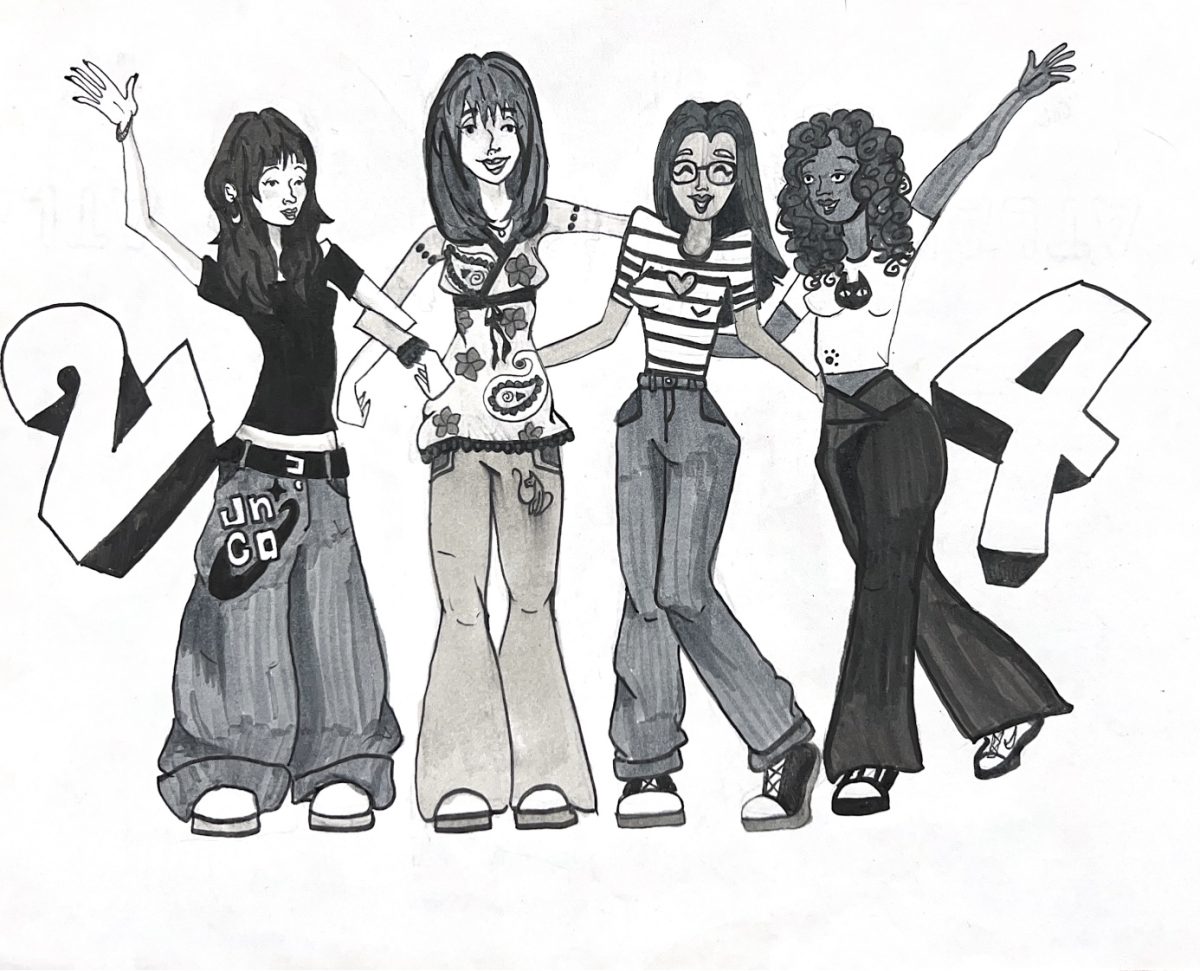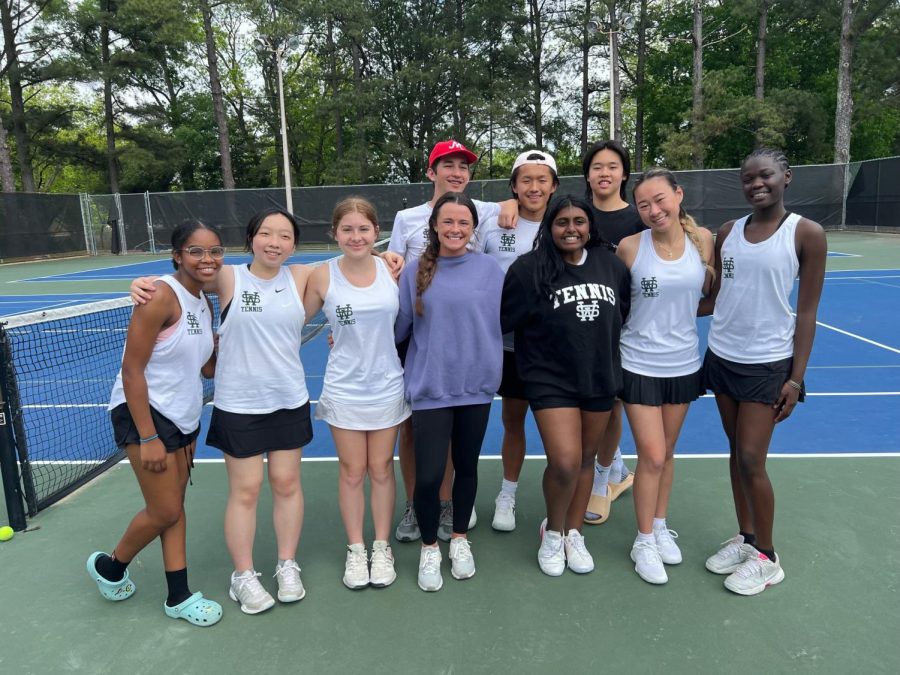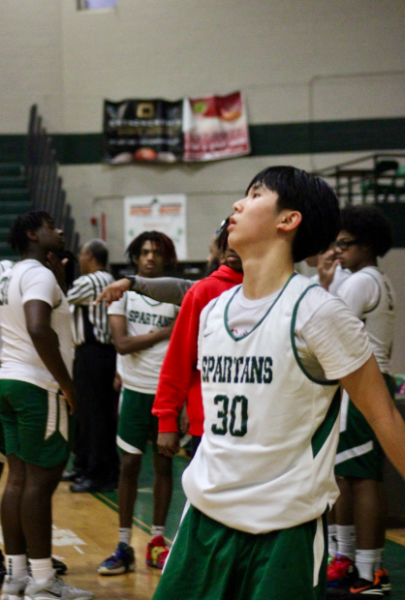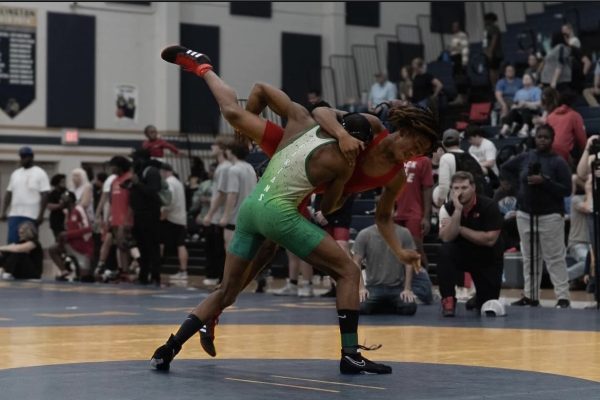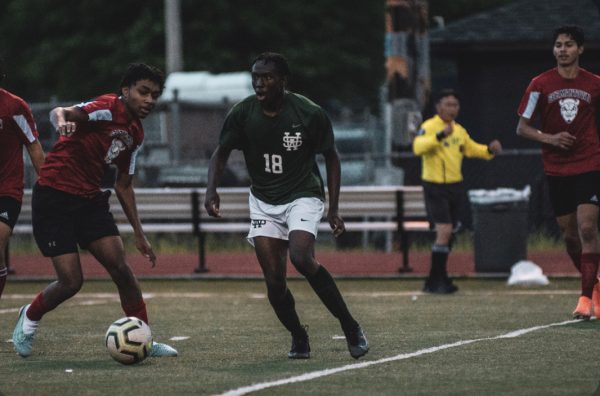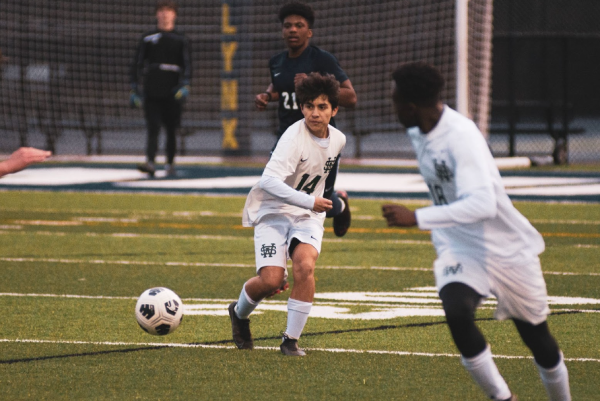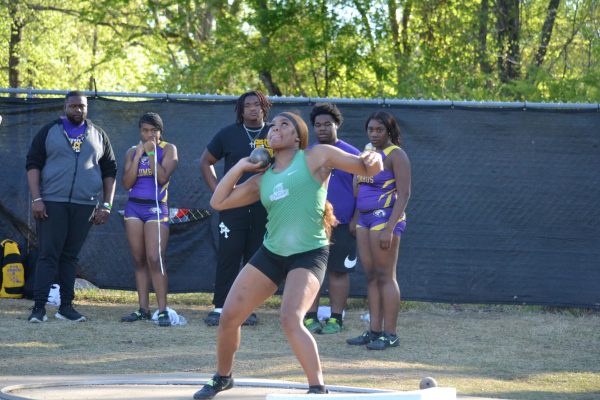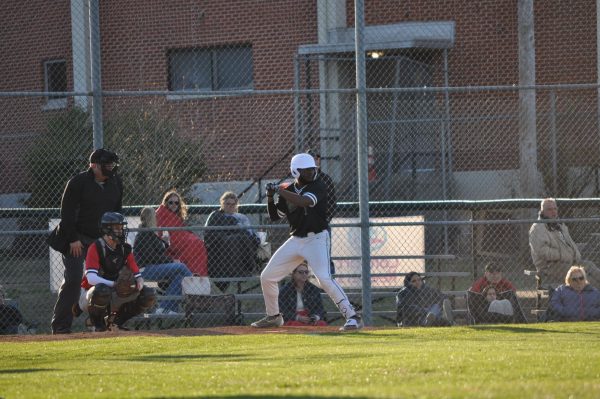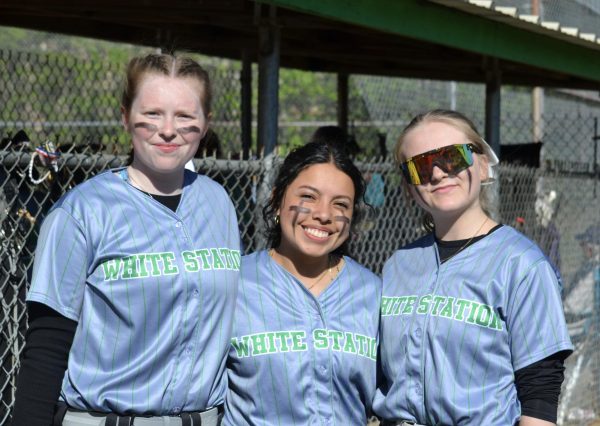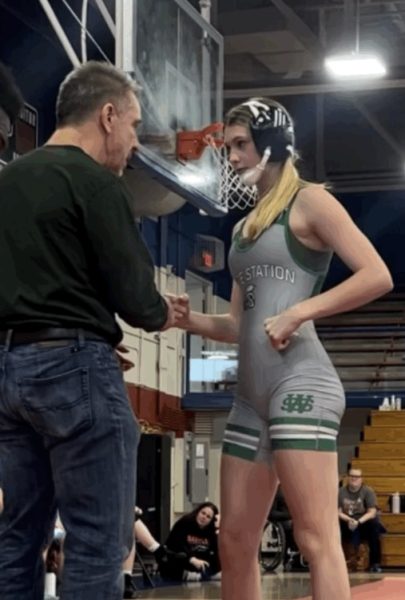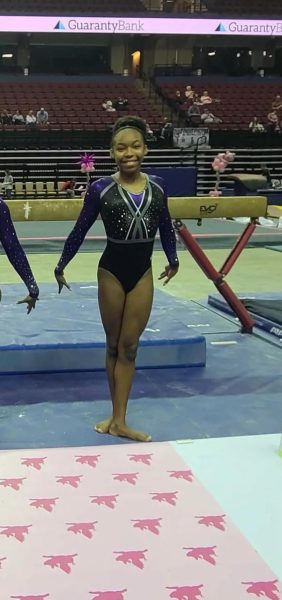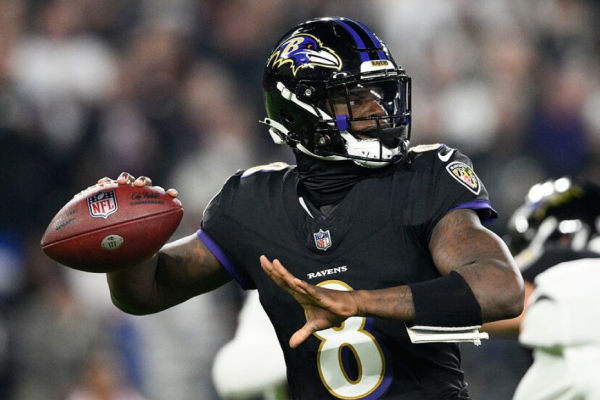Match against mentality
Ira Sharma (12) gets interviewed by ABC24 News after a protest against gun violence. She continued to inform the public on gun violence prevention.
Every sports team needs backup support, whether it’s coaches, parents or friends. The White Station tennis team has Emma Gurien, a dear friend and an admirable coach.
To some, tennis looks like a sport where two players are hitting a ball with rackets in a rectangular court, skipping from side to side and running back and forth. However, the internal rollercoaster of emotions players experience can influence their play for better or for worse.
“The issue I had while playing tennis is the mentality of [feeling] like I’m not good enough and Emma did touch on it,” Colin Le (12) said. “[She said] that we should not worry about things we can not control [but] we should focus on self-improvement and not compare ourselves to others.”
Gurien got her bachelor’s degree in psychology and master’s in sport psychology. Gurien worked with Houston High School until January of this year, when Houston’s athletic director introduced Gurien to White Station’s sport manager.
“This has been the most diverse team I have worked with so far and I’m really enjoying that aspect of getting to know the players, not just from a sports perspective but a personal perspective,” Gurien said.
Gurien’s talks with the team focuses on improving mental skills and emotion regulation that players face before and after a match.
“I remember last year when I had a bad [game], [the thought] of why I didn’t do as good as I should have [would linger in my head] but now I have someone to vent to about it and it’s nice because she can give us advice on how to deal with our emotions pre-game and post-game,” Le said.
To demonstrate how negative thoughts in a player’s head bring them down and how to play after making mistakes, Gurien had players play a match against one another. However, every time one missed a point, they would have to put on, hold or wear an additional item including a backpack, cap or water bottle.
“The more you lose, the more you put on and that was an example of whenever you are playing in a match and you make mistakes, you feel worse and worse.” Le said. “Those mistakes really start getting in your head and it’s almost like baggage [you have to carry.]”
Gurien was a multi-sport athlete in highschool and college: she ran track, played volleyball and softball and did competitive cheerleading for 16 years. For Gurien who was once in the same position the tennis players are in now, she wants to help out the players mentally in every way possible.
“Back to me playing sports in college, I had a lot of problems with my mental health that just got worse and going through that I realized I could be there for athletes who [do] not have anyone to talk to and be their support system,” Gurien said.
Le agreed that other schools should have more people like Gurien on their sports team for the player’s mind.
“I think so much of sport is mental because it is so easy for athletes to beat themselves up over a defeat,” Le said. “Tennis is an individual sport so there is no one to blame if you lose [but Emma gives] us advice on how to deal with our emotions pre-game and post-game.”
Gurien’s role as strength and conditioning coach for the players’ minds, and her way of coaching them touched the players’ hearts.
“Emma really cares about our health as a team and individuals,” Le said. “She’s putting her most effort into it [and] helping us [with passion.]”
Your donation will support the student journalists of White Station High School. Your contribution will allow us to purchase equipment and cover our annual website hosting costs.

